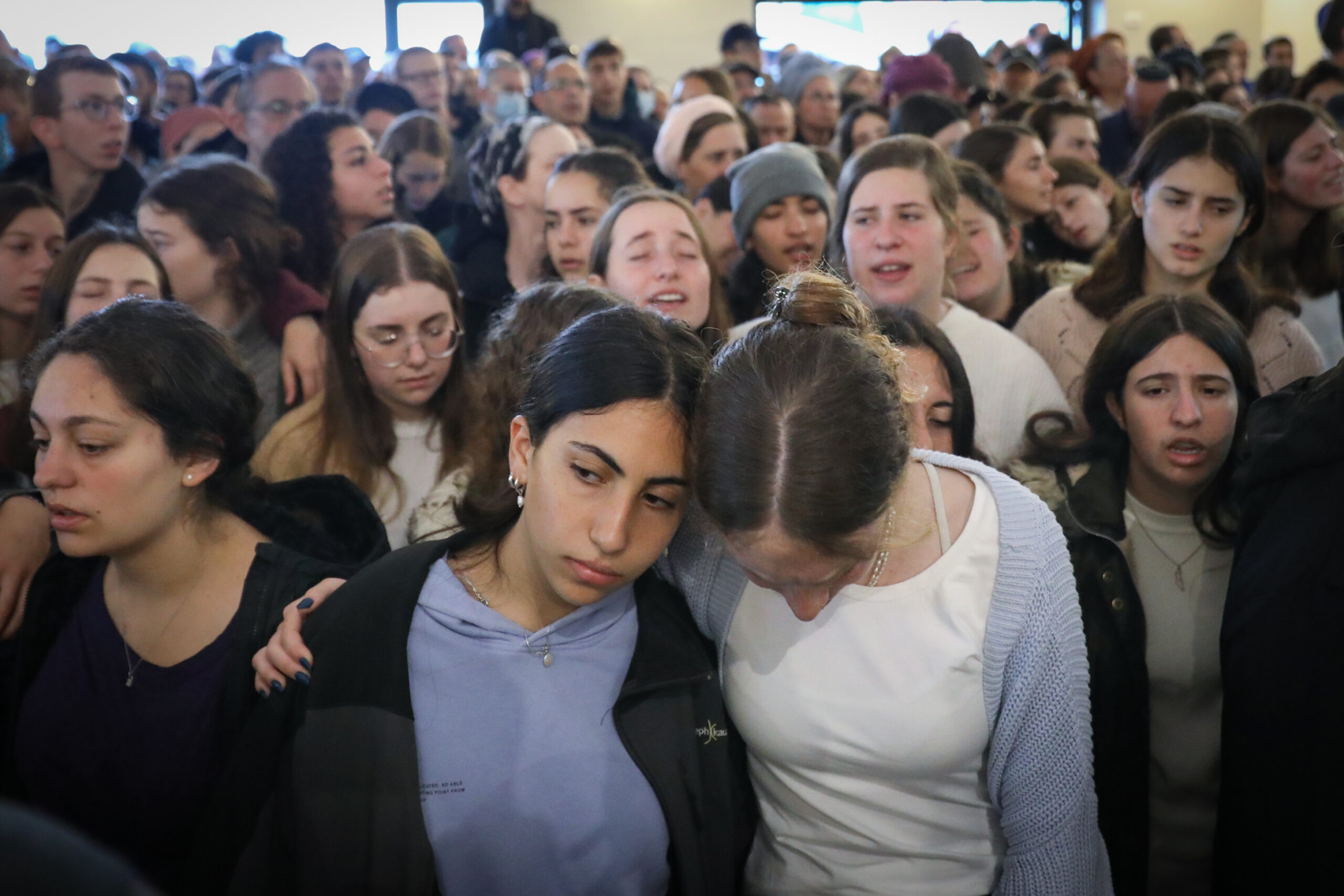Over Passover, the Dee family of Efrat, Israel, faced an unimaginable tragedy when terrorists murdered wife and mother Lucy and two daughters Maia and Rena. Not only was the town of Efrat in shock, but the entire country of Israel was in disbelief. The outpouring of love and support in response to this catastrophe offers some important lessons about the importance of community and what it takes to build a strong one.
When the Dee family traveled from their home to the cemetery in the next town, the residents of Efrat and neighboring towns lined the streets holding Israeli flags to provide support. Over ten thousand people attended the funerals. During the Dees’ seven-day period of mourning (shiva), Israelis from all walks of life – secular and religious, of European (Ashkenaz) and Middle Eastern (Sephard) descent, from Israel’s north and south, from every socio-economic sector – have come to offer comfort. Jews living outside of Israel have flown to Israel to offer their condolences. Israel’s Prime Minister, President, and numerous cabinet and Knesset ministers have come as well. Dozens of friends and neighbors have volunteered three meals a day and extra assistance in the house.
Sensing the tragedy felt by the community of Efrat, numerous communities also looked for ways to show their love and care to the hundreds of neighborhood residents. One town delivered chocolates, another baked challah bread for the Sabbath, another from almost two hours away brought plants to each family, and a town near where Lucy, Maia, and Rena were murdered prepared cakes for the members of the Dee’s synagogue.
If any kind of consolation can come from this terrible tragedy, perhaps we can learn the power of a caring community that is modeled by the citizens of Efrat, all of Israel, and Jews worldwide. This overflowing love and care stems from a deep sense of community and belonging. This ability to live beyond oneself is nurtured by two factors that bind the Jewish people together: commemoration and commitment.
Jews worldwide annually celebrate holidays that commemorate their formative historical events. Biblical holidays like Passover and Shavuot respectively recall the exodus from Egypt and receiving the Torah at Mount Sinai. Later holidays like Chanukah celebrate the Jewish victory over the Syrian Greeks, and modern holidays like Israel’s Independence Day (Yom Haatzmaut) mark Israel’s new sovereignty on its ancient homeland. These stories of shared salvation bind Jews together across socioeconomic, religious, and geographic divides.
Though these commemorations form each person’s psychological framework, it is communal commitment that guides their mindset towards action. Commitment requires both non-withdrawal and active dedication. All communities have their internal disagreements and differing opinions. They nonetheless stay unified when community members remain within the community even when their point of view is not accepted. Though these are quite difficult periods to experience, remaining part of the community despite the disagreement, makes relationships non-conditional and non-transactional. People remain within the community because of their commitment to it, not based on what they get out of it. This deepens trust and increases loyalty.
Communities also require consistent giving and dedication. Over 90% of Efrat’s families attend synagogue on a weekly basis, compared to just 20% in the US. Religion has the potential to properly calibrate and integrate our material existence within our Divine relationship and our interpersonal ones. Coming to the same place on a weekly basis to pray and see friends outside of a work context increases people’s attachment to each other and their community.
Commemoration and commitment continually fill a deep reservoir of communal bonds. When the unthinkable happens, communal love and care organically gushes forth.
An appliance repairman with his own tragic family situation once remarked to a relative of mine that he wishes that he had a strong and tight community like the Jewish communities that he saw. He was under crushing debt due to medical bills for a child’s chronic illness, with no end in sight. He commented that he knew that if he was part of a congregation, the community would together bear the load, but he wasn’t, and he was drowning. Cultivating these communal bonds is a slow process, but it begins with individuals living beyond themselves. First, if one opens themselves up and allows the past to live in the present, national memories and grand narratives can become personal. This means taking time off from work, year after year, and without shopping or other distractions, to commemorate your community’s particular formative experiences. Second, when individuals commit themselves to a community and volunteer for it, they create deep trust, loyalty, and attachment.
For sure, these are vulnerable and uncertain processes. Such is human nature. But playing it safe only helps in the present. Continual non-commitment leads to loneliness which remains a large public health crisis and has numerous negative long term health effects. Human flourishing therefore requires taking risks in the present to develop a community. This happens when each individual makes themselves a participating, contributing member of the group through commemoration and commitment.




